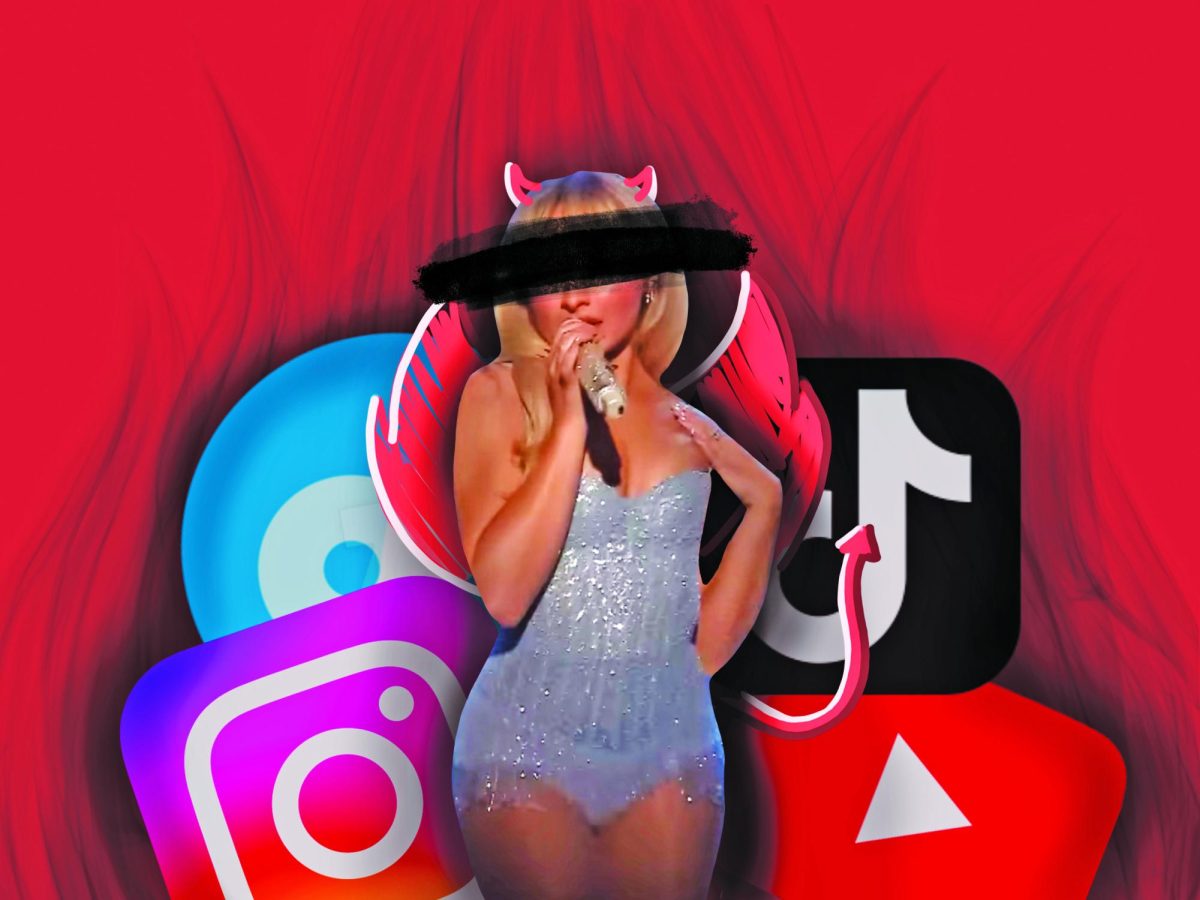When I reflect on my childhood, I think about playing outside with friends and making cardboard crafts in my bedroom.
I don’t think about scrolling on TikTok or watching Sabrina Carpenter strike sex poses on stage.
Childhood innocence is being erased. Thanks to social media and the normalization of explicit material from mainstream celebrities, kids are now bombarded with hyper-sexualized content at every turn.
Take Sabrina Carpenter. Once a Disney darling, she has rebranded herself into a pop sensation whose music and performances are laced with overtly sexual themes. “Coincidence” and “Bed Chem” are just a few of her tracks containing lyrics that are anything but child-friendly, with lines like “Now she’s sendin’ you some pictures wearing less and less” and “Come ride on me–I mean camaraderie.”
Recently, the singer embarked on her “Short n’ Sweet Tour,” named duly after her latest album. Her performances have gone viral for their controversial choreography, hallmarked by the “Juno” poses infamous for imitating sexual positions that range from arching her back to placing the microphone between her legs.
A recent survey from the Pew Research Center revealed that 59% of US adults under 30 use TikTok, with usage rates higher among younger demographics. Additionally, research from UC San Francisco found that 67.1% of children aged 10 to 15 use TikTok despite age restrictions, highlighting the widespread engagement of children with social media.
It’s troubling to consider how much mature content children are regularly exposed to.
Unfortunately, Sabrina Carpenter isn’t the only participant in this trend. Artists like Doja Cat, Cardi B and Ariana Grande ride on the philosophy that sex sells, and they’re more than willing to push that narrative regardless of who’s watching.
The core issue is that social media makes this content inescapable. TikTok, Instagram and YouTube are no longer platforms for harmless entertainment. They have become digital funnels of suggestive, adult-oriented material that poison the minds of children. Algorithms work against parents, pipelining explicit videos, provocative dance trends and inappropriate music into their kids’ feeds, often without them searching for it.
Of course, some argue that it’s ultimately the parents’ responsibility to monitor their children’s media consumption. While parental oversight is crucial, it’s unrealistic to assume that parents have full control. The tragic reality is that no matter how many parental locks are set up, how many conversations are had or how much screen time is limited, the sheer vastness of social media makes it nearly impossible to shield kids entirely from inappropriate content.
Algorithms are designed to keep users engaged, and children are easy targets. Even if parents restrict certain apps, explicit content snakes its way through YouTube shorts, advertisements or shared posts from friends.
Moreover, many children today have access to the internet through school devices, friends’ phones or public Wi-Fi. Parents can’t monitor every single digital interaction, and social media companies know this. Yet, they continue to profit off of explicit content fed to young audiences.
It’s evident that blame cannot fall solely on parents. Social media platforms and celebrities pushing hyper-sexualized content must be held accountable. We need stricter content regulations, mandatory age verification systems that actually work and algorithmic changes that prevent kids from being force-fed adult material.
For example, Instagram and TikTok have age restrictions, but they rely on self-reported ages, which are easily bypassed. A more effective system, such as government-issued ID verification could ensure that minors aren’t accessing inappropriate content, a system used by some online gambling platforms.
Additionally, platforms claim to moderate explicit material, yet their algorithms often push content without proper oversight. For instance, YouTube Kids has faced criticism from parents and tech watchdogs for allowing disturbing or overly mature content to slip through its filters.
Implementing AI models trained specifically to detect and restrict hyper-sexualized material, similar to the AI used for copyright detection, could be a step forward.
If Big Tech companies like TikTok can manipulate feeds to maximize engagement, they can certainly develop mechanisms to protect children. They simply don’t want to because it fails to boost their profits.
Parents can only do so much, and it’s time to stop pretending they can end this crisis alone. Social media companies, music industries and celebrities must enhance their awareness and acknowledge their role in the premature sexualization of children. If they refuse, then it’s up to policymakers, and society as a whole, to demand better.
The time has come to prioritize the innocence of our children over stacks of cash. Society must take action now to protect childhood before screens completely brainwash the next generation.
This article originally appeared in the Summer 2025 print edition.



